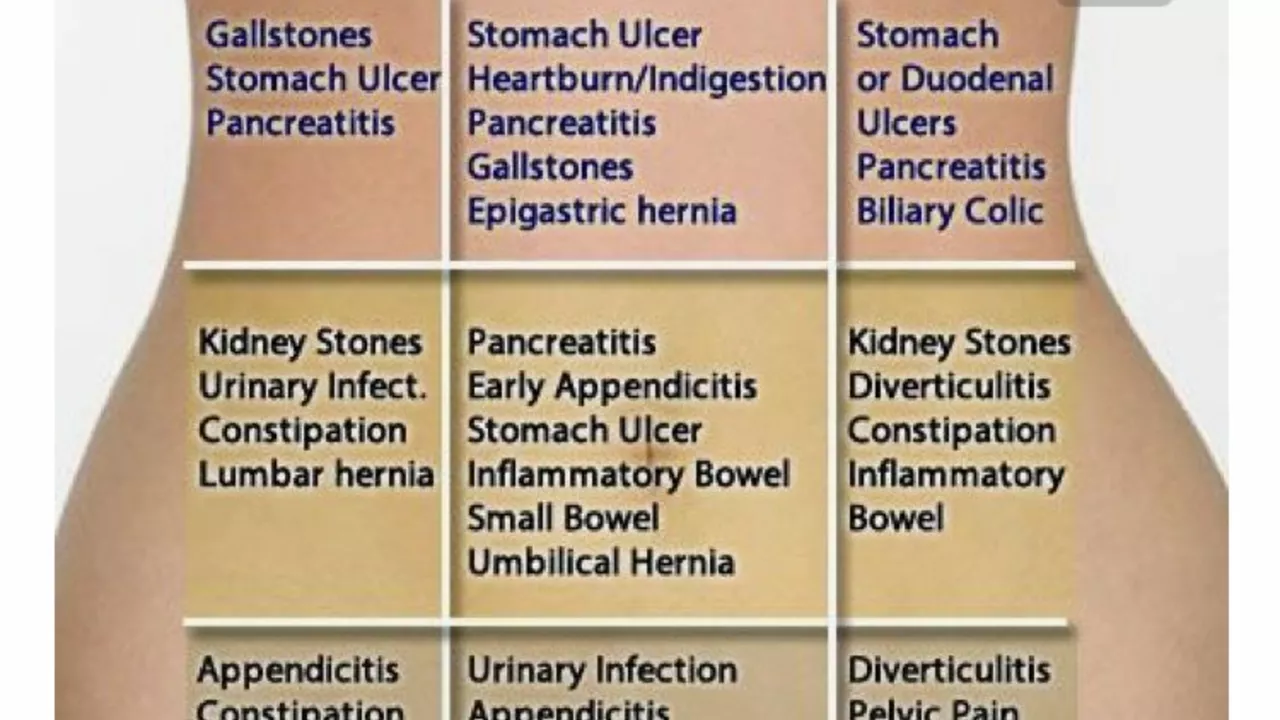Functional Abdominal Pain Syndrome: What It Is and What You Can Do
If your belly hurts a lot but doctors keep saying “all tests look normal,” you might have functional abdominal pain syndrome (FAPS). This is chronic abdominal pain linked to how your gut and nervous system talk to each other, not to a visible structural problem. That makes it confusing, but there are real steps that help most people feel better.
What to expect: symptoms and red flags
FAPS usually means daily or near-daily abdominal pain lasting months. Pain can be sharp, aching, or crampy and may move around. You might also have bloating, changes in bowel habit, or food-triggered flares. Watch for red flags and see a doctor right away if you get unexplained weight loss, high fever, persistent vomiting, bloody stools, or severe pain that won’t calm down.
Doctors will typically do basic tests to rule out other causes: blood work, stool tests, and sometimes imaging or endoscopy. If those are normal but symptoms persist, the diagnosis may move toward a functional disorder. That’s not “all in your head”—it’s about nerve and muscle signaling between brain and gut.
How to manage FAPS: practical, everyday steps
Start with simple changes you can control. Keep a pain and food diary for 2–4 weeks: note what you eat, sleep, stress levels, and pain scores. That often reveals clear triggers. Try small, consistent habits first—regular meals, gentle hydration, avoid big meals late at night, cut back on caffeine and alcohol, and limit high-FODMAP foods if bloating is a problem.
Self-care helps: heat packs, paced breathing, short walks, and good sleep routines reduce flare severity. Over-the-counter options like antispasmodics or acetaminophen can give short relief—check with your provider, especially if you take other meds.
Treatment often pairs medicine with therapy. Low-dose neuromodulators (such as certain antidepressants) can calm nerve pain in the gut. Behavioral treatments like cognitive behavioral therapy (CBT) or gut-directed hypnotherapy help change pain perception and are backed by solid evidence. Physical therapy from someone familiar with pelvic and abdominal muscles also helps some people.
Avoid quick fixes like long-term opioids; they can make chronic abdominal pain worse. If you’re already on multiple drugs, ask your clinician about simplifying medications—polypharmacy raises risks.
When to get specialty care: if pain limits daily life despite basic steps, ask for a gastroenterology referral, pain clinic review, or a behavioral health specialist who treats chronic pain. A team approach usually works best.
Related reads you may find useful:
- The Mental Health Effects of Metoclopramide — learn about meds that affect mood and gut symptoms.
- Best Gabapentin Alternatives for Seniors — options if nerve-pain meds are being considered.
- Finding the Best Deals on Neurontin — practical info if gabapentin is part of your plan.
Bottom line: FAPS is treatable even if tests are normal. Track what matters, try simple lifestyle fixes, and work with a team that combines medical and behavioral care. Small consistent steps often add up to big relief.

The Role of Rifaximin in the Treatment of Functional Abdominal Pain Syndrome
Haig Sandavol Jul 31 17Hey there folks! So, let's talk about this mighty warrior, Rifaximin, and its role in battling that pesky villain, Functional Abdominal Pain Syndrome (FAPS). In the medical world, this superstar drug is getting loads of attention for its role in treating FAPS - a condition that can bring more drama than a bad reality TV show. Rifaximin, like a courteous knight, steps in to balance the bacteria in our gut, reducing the symptoms of FAPS and making our bellies much happier places to be. So next time your gut starts acting like a diva, remember our friend Rifaximin, who's always ready to come to the rescue. Isn't science just awesome?
More Detail